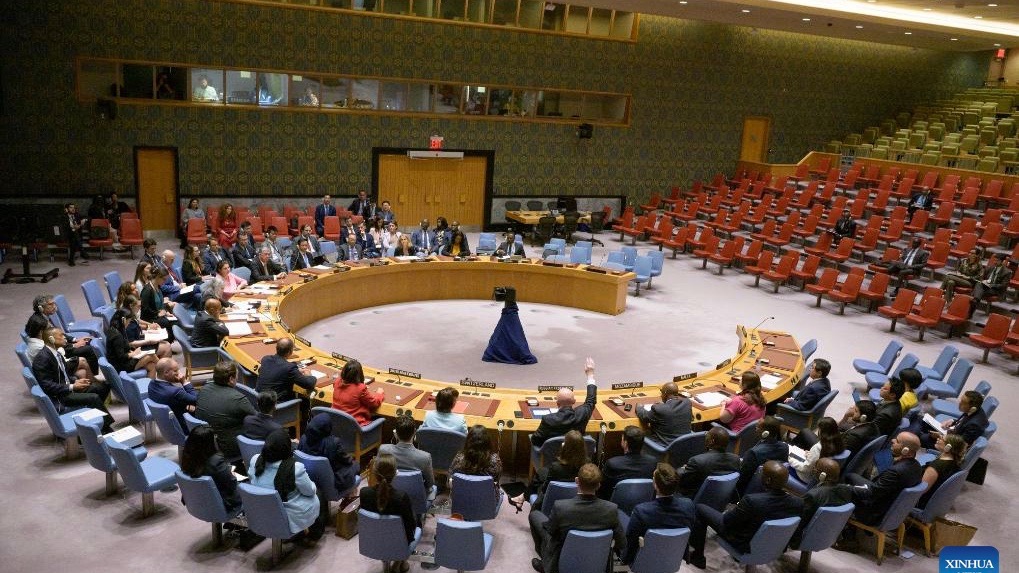On Thursday, August 31, Russia vetoed a resolution proposing the extension of sanctions against Mali for another year. The resolution was proposed by the country’s former colonizer, France, and the United Arab Emirates (UAE).
The draft resolution proposed the extension of sanctions against Mali until August 2024, ignoring Russia’s demand that the text should mention that this would be the last extension.
The resolution was supported by 13 members. Russia vetoed it and China abstained from voting.
Russian ambassador to the UN Vasily Nebenzya claimed before the placement of the resolution that the indefinite extension of the sanctions would be “counterproductive” as Mali had officially requested their lifting. He also said that it may compromise the efficiency of the sanctions regime and have a negative effect on the ongoing peace process in the country, TASS reported.
The Russian veto also led to the termination of the mandate of the UN expert group responsible for monitoring the human rights situation in Mali, AP reported. If the resolution was accepted, the mandate of the expert group would have been extended until September 2024.
Russia had proposed an alternative resolution which called for the immediate termination of the UN expert group’s mandate and extended the sanctions for the final time until August 2024.
Russia failed to get the necessary nine affirmative votes for its resolution as all other countries abstained from voting except Japan which voted against it.
The AP report claimed that the Russian veto was due to the UN expert group’s critical approach towards the role of the Wagner group, which was hired by the Malian government to fight against extremist groups in the Sahel region.
Russia claimed that its opposition to the expert group was a reflection of the wishes of the Malian government.
Russia claims UN mandate was blocking the peace process in Mali
Nebenzya claimed that the draft proposed by France and the UAE refused to take notice of the concerns raised by the Malian government and the Russian Federation. He underlined that Russia, Mali, and other African countries had agreed to extend the sanctions for a year on the condition that it would be the last extension.
Nebenzya said that sanctions “should not turn into an instrument of external influence on domestic political processes in Mali,” as was increasingly seen in recent times.
Mali has faced large-scale violence by extremist groups in Africa’s Sahel region ever since the NATO-led invasion of Libya in 2011. The then Malian government had invited French and UN troops to counter the violence.
After the failure of the 2015 Algiers agreement between the then government and the rebel groups, UNSC sanctions were imposed on Mali in 2017 with the consent of the Malian government at the time.
However, the presence of French troops in Mali was never accepted by the people, which led to a mass movement against them. France was finally forced to withdraw all its troops from the country earlier this year after a regime led by Colonel Assimi Goita took power in May 2021.
The Malian military regime has also asked for the withdrawal of UN peacekeepers from the country. The mandate of United Nations Multidimensional Integrated Stabilization Mission (MINUSMA) is set to end on December 31.
In a letter to the UNSC, the new military regime has also demanded the lifting of all sanctions on Mali. The eventual lifting of the sanctions would help consolidate the peace process in the country, Nebenzya claimed.





